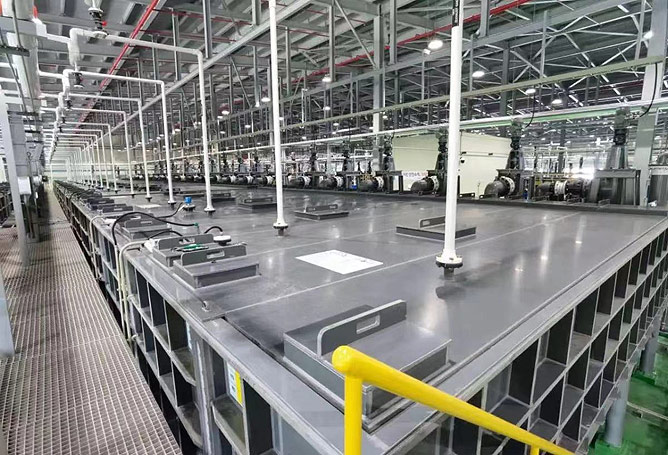The properties of liquid phases, particularly viscosity and density, play critical roles in influencing the efficiency of mixing during the liquid-liquid extraction process in a
Mixer Settler Extractor. Let's explore in detail how these properties affect the mixing process:
1. Viscosity:
Definition: Viscosity is a measure of a fluid's resistance to deformation or flow. It characterizes the internal friction within a moving fluid. High viscosity implies thicker and more resistant flow behavior.
Impact on Mixing Efficiency:
Influence on Agitation Speed: Viscosity significantly affects the rate at which the liquid phases can be agitated. Higher viscosity results in greater resistance to flow, requiring higher agitation speeds to induce effective mixing.
Emulsification Challenges: High viscosity can lead to challenges in achieving uniform dispersion and emulsification of the immiscible phases. The increased resistance to shear forces may hinder the breakup of larger droplets, affecting mass transfer between phases.
Adjustments and Considerations:
Optimization of Agitation Parameters: To account for viscosity, the agitation speed and impeller design may need to be optimized. Higher viscosities may require more powerful agitators or modifications to impeller designs to enhance shear forces.
Temperature Influence: Temperature adjustments can impact viscosity. Elevated temperatures can reduce viscosity, making mixing more manageable. However, the impact of temperature should be considered in relation to the specific components being processed.
Industry Applications:
Chemical Processing: Viscosity is a crucial consideration in chemical processing applications where the liquid-liquid extraction involves high-viscosity solvents or reactants.
Biopharmaceuticals: Industries such as biopharmaceuticals, where the liquid phases may include viscous solutions or cell culture media, must carefully consider viscosity effects on mixing.
2. Density:
Definition: Density is the mass per unit volume of a substance. It is a measure of how much mass is contained in a given volume.
Impact on Mixing Efficiency:
Buoyancy and Settling: The density difference between the two liquid phases determines the buoyancy and settling behavior during the settling phase. A significant density contrast enhances phase separation, allowing for clearer and faster settling.
Influence on Emulsification: Density differences can influence the formation and stability of emulsions. When densities are closer, emulsions may be more stable, requiring careful control during the mixing stage.
Adjustments and Considerations:
Optimizing Settling Time: Density influences settling time, and adjustments may be made to the settling time in the settling unit to allow for complete phase separation. A longer settling time may be required for phases with minimal density contrast.
Density Matching: In some cases, density-matching strategies may be employed to minimize emulsification and promote clear phase separation. This may involve the addition of density-adjusting agents.
Industry Applications:
Petroleum Industry: In the petroleum industry, where liquid-liquid extraction is common, density differences between oil and water phases are carefully managed to optimize separation efficiency.
Food and Beverage: In applications like the food and beverage industry, where the liquid phases may have varying densities, careful consideration is given to density effects on mixing and separation.
3. Combined Impact:
Synergistic Effects: The combined influence of viscosity and density adds complexity to the mixing process. High viscosity and large density differences may require a careful balance in optimizing agitation parameters and settling conditions for efficient liquid-liquid extraction.
Modeling and Simulation: Modeling and simulation tools may be employed to predict and understand the interaction of viscosity and density in the mixing unit, aiding in the design and optimization of Mixer Settler Extractors.
